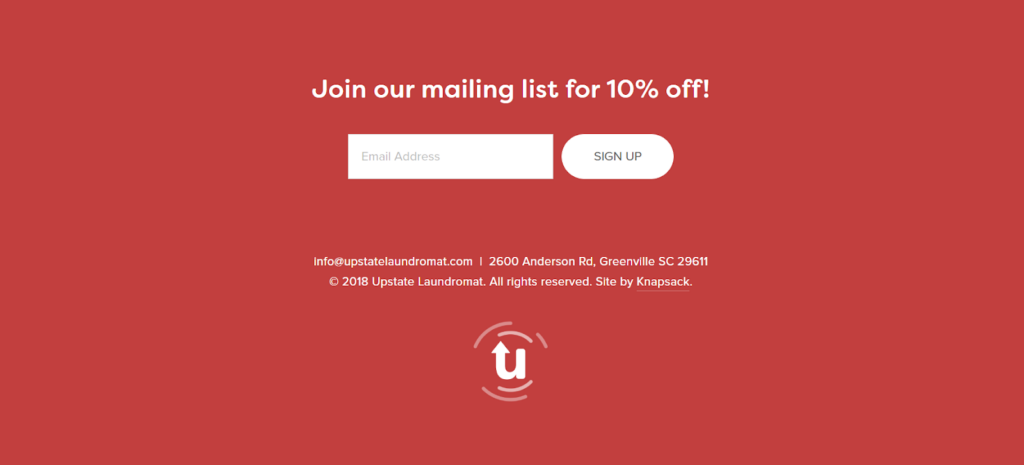One-page Websites: What They Are and How to Choose Domain Names for Them
- by Ilona K.

Table of contents
Small businesses and individual professionals may not always have the resources to create a comprehensive multi-page website. Another situation when companies don't need such big websites, but need a compact site reflecting a targeted action that may attract the user’s attention. This is where a one-page website comes into play.
What is a one-page website and who is it suitable for?
A one-page website is a simple site which consists of a single page. They are typically used as a starting point for businesses and individuals to build online presence. Here are some of the most common use cases for one-page websites:
Business card websites

Think of it as an online version of your business card. The website contains detailed information about the company or specialist, their area of expertise, products or services, as well as contact details.
Who is it suitable for? Businesses and individuals who seek to highlight their contact information and modernize their approach to networking. A one-page business card website creates a one-stop shop to quickly get familiar with the business at a glance.
Here are some examples of suitable domain names for business card sites on .it.com (availability and prices current at time of publication):
- *company name*.it.com,
- businesscard.it.com ($49 per year, available),
- carservice.it.com ($49 per year, available),
- constructionfirm.it.com ($49 per year, available),
- construct.it.com ($49 per year, available),
- build.it.com (premium domain, available).
- designstudio.it.com ($49 per year, available),
- design.it.com (premium domain, available).
CVs or portfolios

A one-page website can help showcase professional skills with examples of previous work.
Who is it suitable for? Portfolio sites are particularly beneficial for creative professionals; photographers, designers, copywriters and artists. A CV site is a good choice for individuals looking for new job opportunities and wishing to display a summary of their professional experience in a single, easily accessible location.
Here are some examples of suitable domain names for one-page sites on .it.com (availability and prices current at time of publication):
- *your name*.it.com,
- cv.it.com (premium domain, available),
- programmer.it.com ($49 per year, available),
- architect.it.com ($49 per year, available),
- copywriter.it.com ($49 per year, available),
- businessmanager.it.com ($49 per year, available).
Event pages

Microsites created for events, training courses, or meetups can provide information about promotions, products or services, menus, etc. You can place a date, time and list of participants, as well as a registration form.
Who is it suitable for? Event organizers, various educational courses, restaurants, cafes, and businesses looking to promote their products or services.
Here are some examples of suitable domain names for one-page sites on .it.com (availability and prices current at time of publication):
- *product or service name*.it.com,
- visit.it.com (premium domain, available),
- concert.it.com ($49 per year, available),
- enjoy.it.com (premium domain, available),
- meet.it.com (premium domain, available).
Surveys and questionnaires

These websites are for conducting various surveys of users and collecting their data for CRM purposes. They help to collect responses, and feedback, as well as compile client databases and create consumer profiles.
Who is it suitable for? One-page sites with surveys and questionnaires are ideal for businesses seeking to gain insights into their staff or customers, identify ways to provide value and gather data for marketing purposes.
Here are some examples of suitable domain names for one-page sites on .it.com (availability and prices current at time of publication):
- survey.it.com ($49 per year, available),
- answer.it.com (premium domain, available),
- optin.it.com ($49 per year, available).
Landing page

The main goal of single landing page websites is to turn users into clients. A landing page can be any of the above types of one-page sites, but unlike the others, it must lead to a target action: to buy, subscribe, download, etc.
Who is it suitable for? A landing page is a good choice for a business to introduce a new product or service to the market, for offers with a time limit, etc. It’s also a good choice for community building or for a specific campaign launch.
Here are some examples of suitable domain names for one-page sites on .it.com (availability and prices current at time of publication):
- *product or service name*.it.com,
- *brand name*.it.com,
- do.it.com (premium domain, available),
- see.it.com (premium domain, available),
- want.it.com (premium domain, available).
How to choose a domain name for a one-page website?
Since users will only interact with a single page, it is essential to ensure that the domain name is easy to recall and that it is the best representation of your business. The choice of a domain name determines:
- Site recognition: A correctly chosen domain helps to quickly recognize a brand in the online space, and users will easily remember it.
- SEO: Keywords or brands in the site name can directly affect the site’s position in search results. Over time, trusted domains gain good reputations among search engines.
- Increasing user trust: A well-chosen name and TLD help to increase user trust, showing that your company is reliable and its services or products are of high quality.
Just like a multi-page website, you can launch a one-page site on a standalone domain or on a subdomain. What’s the difference?
Standalone domain
This option is suitable for individuals and businesses, if:
- the desired domain name is available in the domain zone of choice,
- you have funds allocated for purchasing a domain name; (in the it.com domain zone you will need only $49 for a domain per year),
- you have enough funds to spend on hosting and maintaining a CMS (content management system),
- you might want to play around with domain hacks.
Subdomain
A subdomain is a part of a domain name that is located before the main domain and TLD (Top-level domain): for example, ‘subdomain.maindomain.com’. This option works well for one-page websites, as:
- they often come at a lower price than standalone domains,
- there might be a wider selection of names to choose from.
Importantly, there is no difference between both options in terms of flexibility; you can build your own structure and design, use your own hosting providers and ensure compatibility with SSL certificates.
Want to know more about domain name strategies for your business? Visit it.com Domains blog and follow us on social media.

Read also

Tips and Tricks
AI Appreciation Day: Top-10 Domain Names for AI Startups on it.com Domains
- 3 min read

